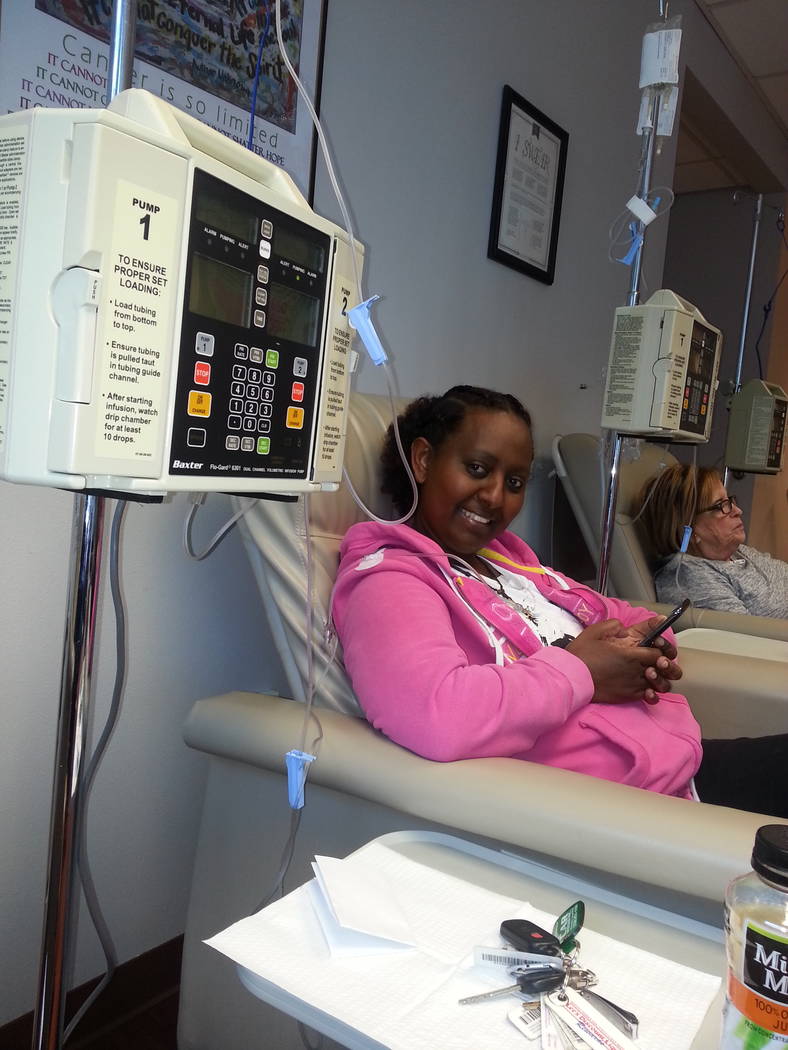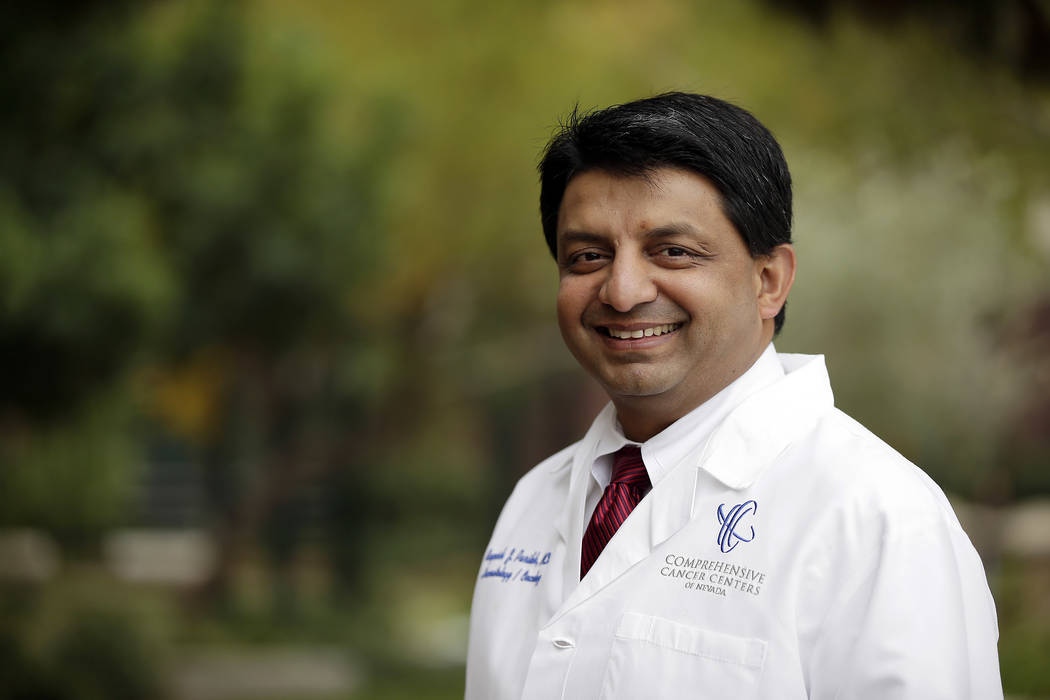Local woman continues fight against breast cancer
A cancer diagnosis was the last thing that Ethiopia Hailemicael expected to receive in August 2010, after telling her obstetrician about the pain she had experienced while breastfeeding her toddler-age daughter.
Following a breast ultrasound and mammogram, her doctor ordered a biopsy of her breast. The results were shocking: At age 35, she had an aggressive hormone negative, HER2-positive tumor.
“Everything was dark in that moment. I didn’t know what to do or what to say,” Hailemicael said.
A longtime housekeeper at Sunrise Hospital and Medical Center, the Ethiopia native had for months been caring for her father during his battle with lung cancer, which had spread to his bones. The last thing she wanted to do was trouble him with her own cancer diagnosis during his final days. (He died two weeks later.)
Soon after, she met with Dr. Rupesh Parikh, a medical oncologist and hematologist at Comprehensive Cancer Centers of Nevada, who had treated her father.
Parikh agreed to take her on as his patient.
“He said … ‘I lost your father, and I promise you (that) you are not going anywhere,’ ” Hailemicael recalled of her initial appointment with the doctor. “He held my hand and was like a father figure to me at that point.”
Within weeks, Hailemicael began chemotherapy treatments.
Parikh enrolled her in a clinical trial being run by cancer researchers from UCLA. For five months, she was closely monitored while undergoing chemotherapy and taking an experimental oral drug that blocked the aggressive HER2 positive breast cancer. The results of the study in which she participated have not yet been released.
Shortly before Hailemicael was scheduled to undergo a bilateral mastectomy in March 2011, it was discovered that she had shown a “100 percent pathological response” to chemotherapy, Parikh said, and lacked any signs of cancer.
Given the finding, she said doctors initially suggested scrapping the surgery. Determined to put cancer behind her, Hailemicael insisted on moving forward with the mastectomy, which was followed by more than seven weeks of radiation therapy.
For a year, Parikh prescribed monoclonal antibody therapy with the targeted cancer drug Herceptin, which she received intravenously every three weeks. Various scans were also performed regularly to ensure that her organs were tolerating the treatment well and that the disease had not recurred.
The cancer appeared to be in remission. For about two years, “I was happy and excited and … everything was normal with my life,” Hailemicael said. She returned to work following a 10-month absence that was made possible by her hospital co-workers, who donated their personal paid time off to assist with her recovery period.
However, in May 2013, Hailemicael said she began experiencing a persistent searing, stabbing pain on her right side. Thinking that she may have injured herself on the job, she mentioned the discomfort to Parikh during a scheduled checkup.
A CT scan was ordered, followed by a PET scan which revealed tumors in her lungs and liver. The breast cancer had returned and was consistent with stage 4 disease.
The diagnosis was devastating for Hailemicael, who recalled screaming in despair. “I was just saying, ‘Why me?’ ”
Parikh was equally upset to have to deliver the news. “The relationship that she and I developed when I was treating her father was more on a friendship level,” he said.
“I still remember the conversation. I said, ‘I’m sorry, but I have good treatments. Let’s put you on them. You fight with me and I’ll fight with you.’ And she said, ‘I’m ready for the fight.’ ”
Treatment began soon after to knock down the tumors, which were growing rapidly. A port was installed, and chemotherapy treatments were resumed. Herceptin was reintroduced, and this time a new monoclonal antibody therapy medication called Pertuzumab was added to the mix.
Once again, Parikh said Hailemicael’s tumors showed a rapid 100 percent response to treatment and she experienced only a few side effects from chemotherapy.
For the past six years, she has continued to receive infusions every three weeks and undergoes echocardiograms and CT scans every four to six months to check the status of her heart and other organs.
“It’s unusual for people when the cancer comes back — especially to two major organ sites — to be here six years later,” Parikh said.
Although the tumors have disappeared and she is in remission, there currently are no plans to end her treatment.
“We’re afraid if we turn (the medications) off, the cancer may come back,” Parikh said. “There’s always a chance it can come back and, statistically, it should have come back by now. She’s just had an amazing response.”
Nearly a decade after receiving her breast cancer diagnosis, now 44-year-old Hailemicael credits Parikh — not the cutting-edge medications that she has received — for saving her life.
“I always choke (up) when I talk about him,” she said. “I told him … ‘God put his power into your hands to (help) me to go through this.’ … (Parikh) is just the light of my life. When I go to his office, I feel like I’m with my family. … Everybody deserves that type of treatment.”



















